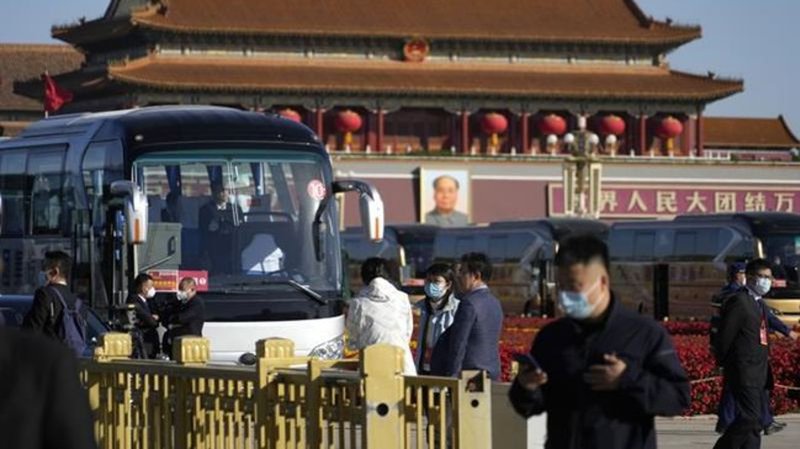
China’s Premier Li Keqiang dropped in leadership shuffle
BEIJING (AP) — Chinese Premier Li Keqiang, the nation’s No. 2 official and a proponent of economic reforms, is among four of the seven members who will not be reappointed to the nation’s all-powerful Politburo Standing Committee.
They were not on the list released Saturday of the ruling Communist Party’s new 205-member Central Committee, which means they cannot serve on the Standing Committee.
THIS IS A BREAKING NEWS UPDATE. AP’s earlier story follows below.
BEIJING (AP) — China’s ruling Communist Party approved an amendment of the party constitution Saturday that could further enhance Xi Jinping’s stature as China’s leader.


